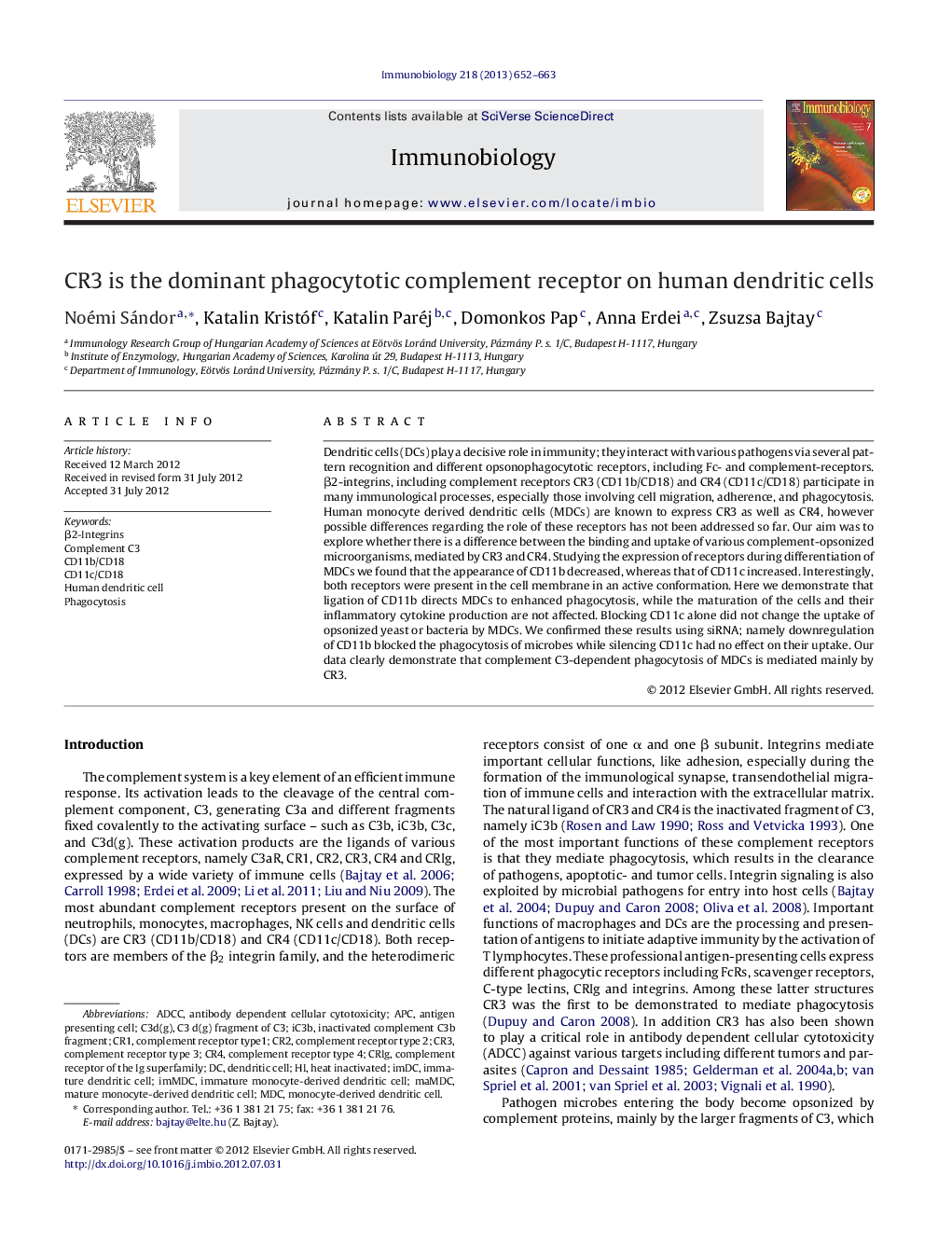| Article ID | Journal | Published Year | Pages | File Type |
|---|---|---|---|---|
| 10941038 | Immunobiology | 2013 | 12 Pages |
Abstract
Dendritic cells (DCs) play a decisive role in immunity; they interact with various pathogens via several pattern recognition and different opsonophagocytotic receptors, including Fc- and complement-receptors. β2-integrins, including complement receptors CR3 (CD11b/CD18) and CR4 (CD11c/CD18) participate in many immunological processes, especially those involving cell migration, adherence, and phagocytosis. Human monocyte derived dendritic cells (MDCs) are known to express CR3 as well as CR4, however possible differences regarding the role of these receptors has not been addressed so far. Our aim was to explore whether there is a difference between the binding and uptake of various complement-opsonized microorganisms, mediated by CR3 and CR4. Studying the expression of receptors during differentiation of MDCs we found that the appearance of CD11b decreased, whereas that of CD11c increased. Interestingly, both receptors were present in the cell membrane in an active conformation. Here we demonstrate that ligation of CD11b directs MDCs to enhanced phagocytosis, while the maturation of the cells and their inflammatory cytokine production are not affected. Blocking CD11c alone did not change the uptake of opsonized yeast or bacteria by MDCs. We confirmed these results using siRNA; namely downregulation of CD11b blocked the phagocytosis of microbes while silencing CD11c had no effect on their uptake. Our data clearly demonstrate that complement C3-dependent phagocytosis of MDCs is mediated mainly by CR3.
Keywords
CR1β2-IntegrinsiC3bCR4CRIgCR3ADCCCR2MDCAPCCD11b/CD18ImDcantibody dependent cellular cytotoxicityComplement C3Human dendritic cellDendritic cellImmature dendritic cellMonocyte-derived dendritic cellantigen presenting cellPhagocytosiscomplement receptor type 3heat inactivatedcomplement receptor type 2
Related Topics
Life Sciences
Biochemistry, Genetics and Molecular Biology
Cell Biology
Authors
Noémi Sándor, Katalin Kristóf, Katalin Paréj, Domonkos Pap, Anna Erdei, Zsuzsa Bajtay,
